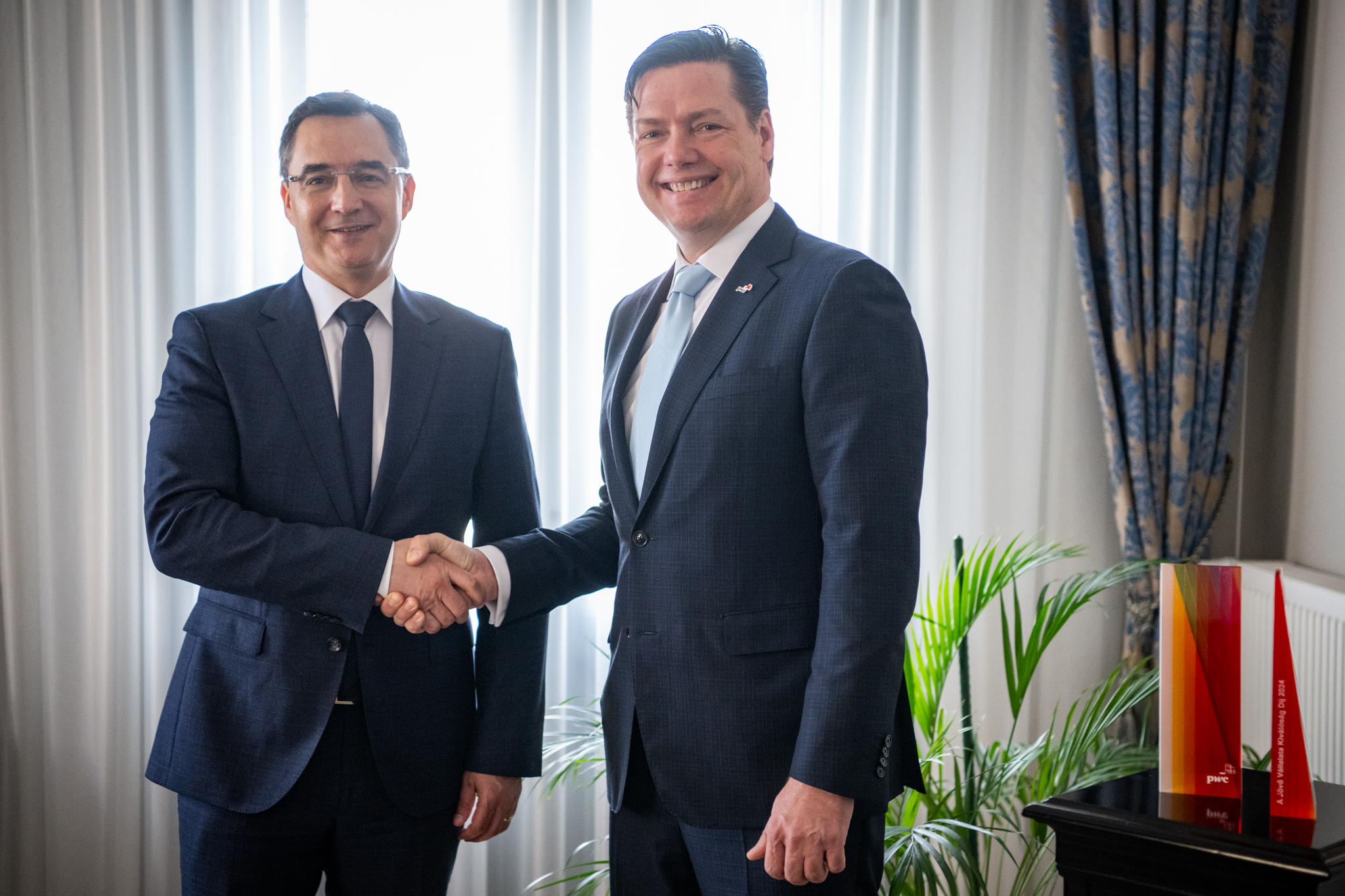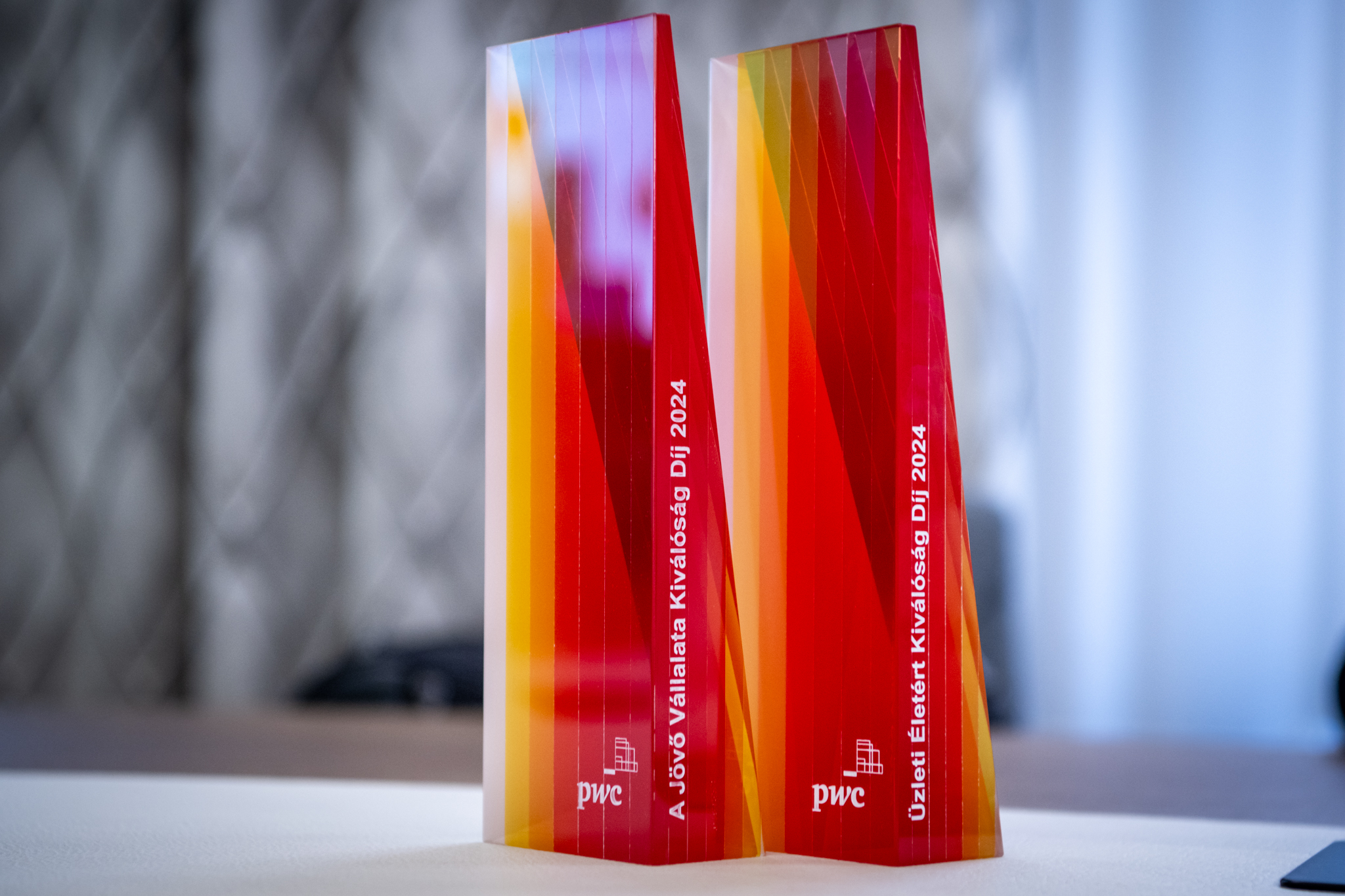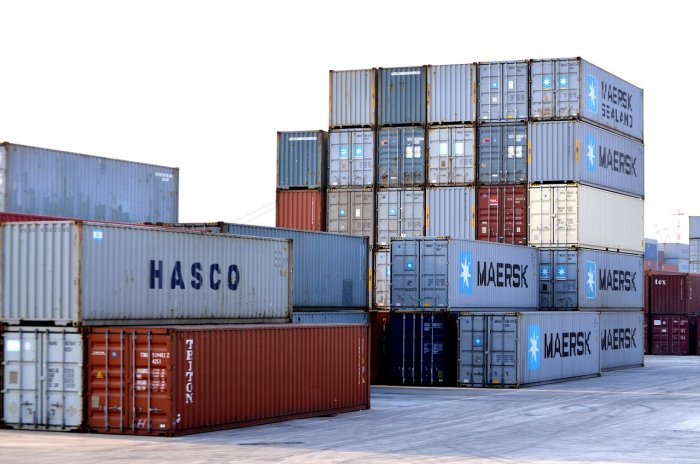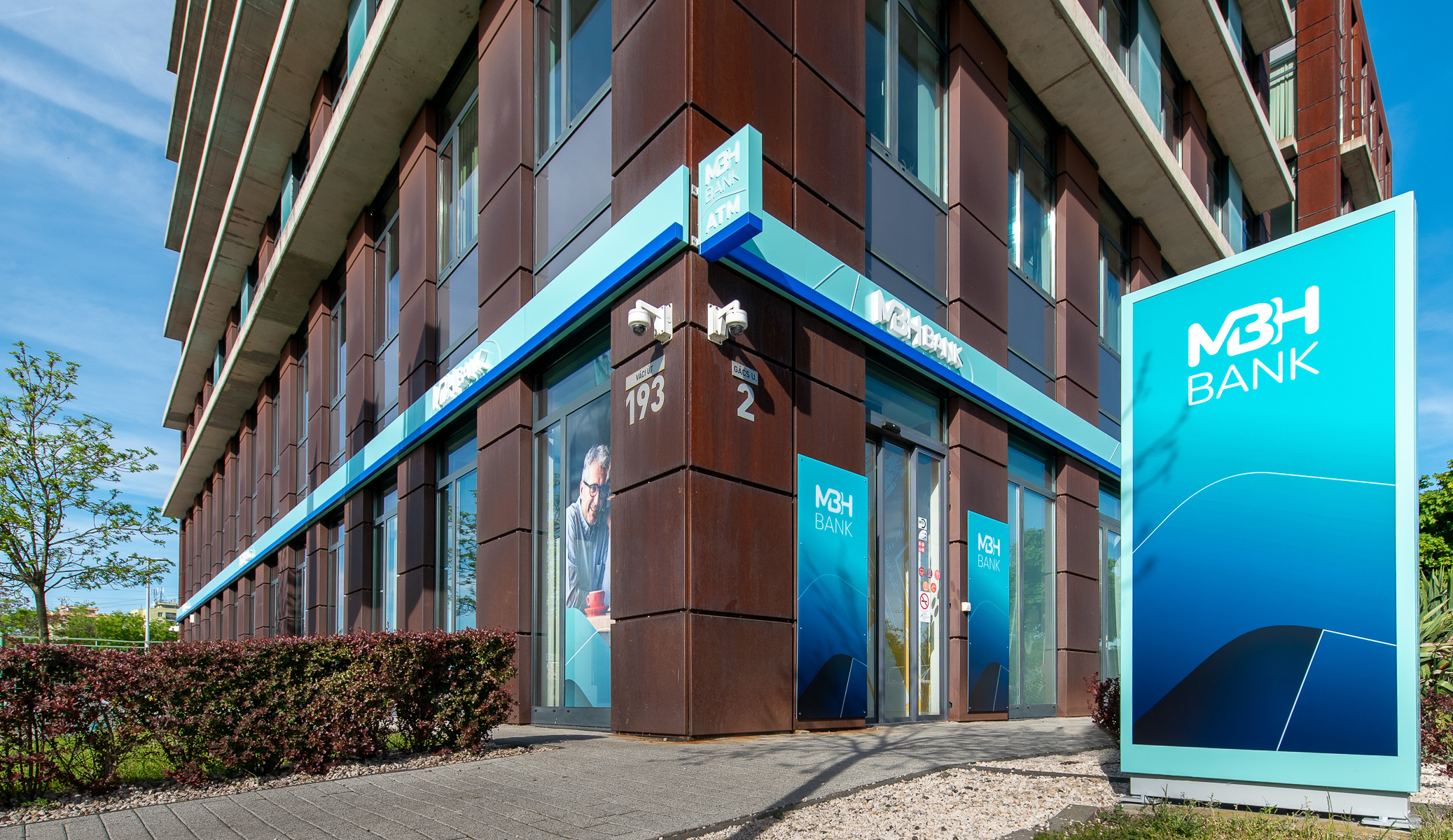The Future is Being Built in Debrecen, Says PwC

PwC Hungary will host the Debrecen Business Forum 2024 on April 9, the first in what is intended to be a series of annual summits organized in partnership with the City of Debrecen. The following is an interview with Mayor of Debrecen László Papp, and Tamás Lőcsei, CEO of PwC Hungary, about Eastern Hungary’s economic successes, plans for the future, and the importance of promoting dialogue between smaller and larger businesses in the region.
BBJ: What makes Debrecen’s economic policy unique?
László Papp: Debrecen’s urban development is carried out along well-conceived strategies that respond to people’s needs. For the past 10 years, we have focused on economic development to put the city’s finances on a solid footing and to have more opportunities to raise the living standards of the people of Debrecen and make their everyday lives easier.
In addition, we are committed to sustainable, green and eco-friendly industrial development. We are constantly looking for solutions to protect the environment. It should be emphasized that the city’s economic development policy can only succeed if, in addition to multinational corporations, an increasing number of local and regional small- and medium-sized enterprises are also part of the production chain. That’s why we have decided to establish Hungary’s first SME park in a large-scale industrial environment in the Southern Economic Zone. While we follow Hungarian and international best practices, we also apply unique local solutions in urban and economic development.
BBJ: How does the region’s dynamic growth manifest itself?
LP: Since 2014, Debrecen has attracted more than EUR 12 billion in capital inflows in greenfield investments, creating more than 19,000 new jobs. By the end of 2023, 6,750 of the announced new jobs had been filled, almost exclusively with Hungarian residents of Debrecen and its environs. Recruitment is in full swing, with graduates from the Vocational Training Center of Debrecen (DSzC) and the University of Debrecen playing a pivotal role. The city’s strength has multiplied in recent years. If economic, cultural, educational and transport characteristics are all considered, by the end of the decade, Debrecen has a good chance of becoming the economically strongest city in rural Hungary and one of the most developed in Central Europe.
A 2020 survey by the Ministry of Innovation and Technology examined the role of county seats and counties in Hungary’s industrial and economic performance. The region’s share was only 2.8%, but thanks to the companies setting up business here, this figure will change significantly in the coming years; by the early 2030s, we expect it to reach beyond 15%, a fivefold increase.
BBJ: What is the importance of Debrecen and the region in greening the economy?
LP: Today, Debrecen is a significant player both globally and locally in the transition to a green economy, thanks to the investments taking place here. We are working to be at the forefront of solving one of the most critical challenges of the 21st century: the storage of green energy. The sustainable and efficient use of green energy is inconceivable without energy storage.

BBJ: As mayor, what role do you envisage for Debrecen in the coming decades? Where do you see Debrecen in 10 to 20 years?
LP: What we have accomplished in Debrecen in the past 10 years and will continue to achieve in the coming years is aimed at improving the quality of life for the people of Debrecen, making the city more prosperous and stronger while providing a safe and eco-friendly environment.
We have the highest employment figures in Debrecen since Hungary’s transition to a market economy. As the number of large companies operating here increased, so did the city’s income: tax revenues tripled in 10 years before major investors had even started production. Job-creating investments also benefit the people of Debrecen, as more resources can be reinvested in measures that make life easier for them.
However, Debrecen does not only want to be an industrial city but also a business and economic hub in Central Europe; in addition to industrial development, the services sector has also grown in importance. Many foreign and Hungarian-owned companies have moved their service centers here, investments that create a significant number of jobs.
BBJ: What is your response to Debrecen’s current labor market situation?
LP: A fundamental problem in previous years was the brain drain, as talented young people left Debrecen to live and work mostly in Budapest. Our main goal is to persuade those who grew up or studied here to settle and embark on a career here or return to Debrecen after gaining a few years of professional experience.
Companies coming to Debrecen offer young people the opportunity to stay here and have a successful career, and those who have left the chance to return. There is a lot of competition in Debrecen for skilled labor, but the city and its educational system also help supply the right workforce. Ten years ago, unemployment in Debrecen was above 8%; today it is 3.7%. Along with strengthening Debrecen’s economy, education has also seen a period of dynamic growth. Since 2015, the number of students at DSzC has increased from 7,500 to more than 12,000. Debrecen can provide a safe place to its residents; the jobs created here, the well-developed infrastructure and high-quality urban services all contribute to the city’s continuing success.
We are launching the Főnix Housing Program, a new rental housing scheme specifically for Hungarian citizens under 35 living or working in Debrecen. This is unique to Hungary because it involves local real estate developers, businesses, and employers. The program aims to ensure that young workers from Debrecen stay in the city instead of moving to the agglomeration. To this end, we provide affordable, low-maintenance, highly energy-efficient housing so they can plan their lives and careers in Debrecen.
The municipality aims to provide young workers and their families 200 apartments with predefined technical specifications. One-third of the rent is paid by Debrecen Municipality, one-third by the employer, and one-third by the tenant. The rental period is five years, after which tenants can purchase their own property.
BBJ: Developing a city or region is a very complex process that does not happen overnight. What makes a location future-proof and attractive for investors?
Tamás Lőcsei: We live in a world of rapid environmental, technological and social changes. These have a profound impact on the growth and development of cities. To be successful, cities must harness modern technologies with efficient and innovative tools in a sustainable way, provide top-notch infrastructure, a suitable location for emerging industries, as well as opportunities for research and development. This, in turn, will contribute to improving the population’s quality of life.
It is a very complex and difficult task for a city to attract international attention. At the negotiation stage, investors examine different locations and consider various factors before making a long-term decision. These factors include a stable business environment, the state of infrastructure development (in other words, motorway access, whether there is an international airport), the availability of skilled labor, state aid, and amenities (housing, cultural opportunities, healthcare, international schools, and so on).
BBJ: Why is Debrecen now in focus for PwC?
TL: PwC joined this dynamic business ecosystem at the end of last year by opening our new office and hosting business events in Debrecen, bringing together representatives of Hungarian and multinational enterprises. We see how Debrecen has grown into a global player with outstanding growth prospects.
Since Nov. 14, when PwC arrived in Debrecen, we have hosted several important local events. Now, as our crowning achievement, we want to showcase the very best of the region’s business community each spring to allow Hungarian and multinational companies to engage in dialogue and learn from one another. It is critical to help both established companies and newcomers prepare for an ever-changing business landscape, focusing on trust and quality.
We also want to promote partnerships between businesses and education, support women in business, and empower disadvantaged groups.
The future is being built in Debrecen. It is Hungary’s second-largest city, the region’s outstanding knowledge center, and the site of an investment success story, so PwC must participate in building its future. The purpose of opening our new office in Debrecen is to contribute to the region’s development. We want to leverage our wide-ranging expertise to support companies and business processes and become the leading audit and business consultancy firm in the area.
BBJ: PwC is organizing Debrecen’s largest business summit on April 9 for medium-sized and large enterprises operating in Eastern Hungary. What is the purpose of this event?
TL: PwC’s Debrecen Business Forum 2024 will be the first of a series of events to be held each spring, focusing on topical business matters. Participants will include CEOs and owners of Hungarian and multinational companies operating in the region, as well as invited speakers. The event offers a unique opportunity for businesses to learn from each other and build synergies.
The afternoon workshops will be organized in cooperation with the German-Hungarian Chamber of Industry and Commerce, the American Chamber of Commerce in Hungary, and the Hajdú-Bihar County Branch of the National Association of Entrepreneurs and Employers.

Two awards, the Business Excellence Award 2024 and the Company of the Future Excellence Award 2024, will be presented at the Debrecen Business Forum 2024 to CEOs who have contributed significantly to the region’s economic development.
Debrecen’s economy has undergone dynamic development in the last 10 years, which is expected to continue in the coming decades. The Debrecen-Miskolc-Nyíregyháza region has become Hungary’s new development hub, and thanks to intensive economic development since 2014, Eastern Hungary is entering a new era of economic potential. PwC Hungary has sought to exploit this potential by opening a new office in Debrecen to serve companies in the region more efficiently and contribute to the development of Eastern Hungary’s economy and education.
According to PwC’s 13th Hungarian CEO Survey, business leaders’ expectations have changed significantly over the past year. They are less concerned and cautiously optimistic for 2024. What are the prospects for CEOs in the Eastern Hungarian region? Are their views any different from those of the rest of the respondents?
While CEOs are less confident about their own prospects for revenue growth, the level of concern about the negative impact of external factors has remained unchanged. Inflation remains the top concern for CEOs (51%), followed by skills shortages, macroeconomic volatility, geopolitical conflict, and cyber risks; at least one-third of CEOs are concerned about these threats significantly affecting their profitability.
PwC interviewed 297 CEOs at the end of 2023, 10% of whom are leaders of companies based in Eastern Hungary. The detailed survey results will also be presented at the Debrecen Business Forum 2024.
This article was first published in the Budapest Business Journal print issue of April 8, 2024.
SUPPORT THE BUDAPEST BUSINESS JOURNAL
Producing journalism that is worthy of the name is a costly business. For 27 years, the publishers, editors and reporters of the Budapest Business Journal have striven to bring you business news that works, information that you can trust, that is factual, accurate and presented without fear or favor.
Newspaper organizations across the globe have struggled to find a business model that allows them to continue to excel, without compromising their ability to perform. Most recently, some have experimented with the idea of involving their most important stakeholders, their readers.
We would like to offer that same opportunity to our readers. We would like to invite you to help us deliver the quality business journalism you require. Hit our Support the BBJ button and you can choose the how much and how often you send us your contributions.











